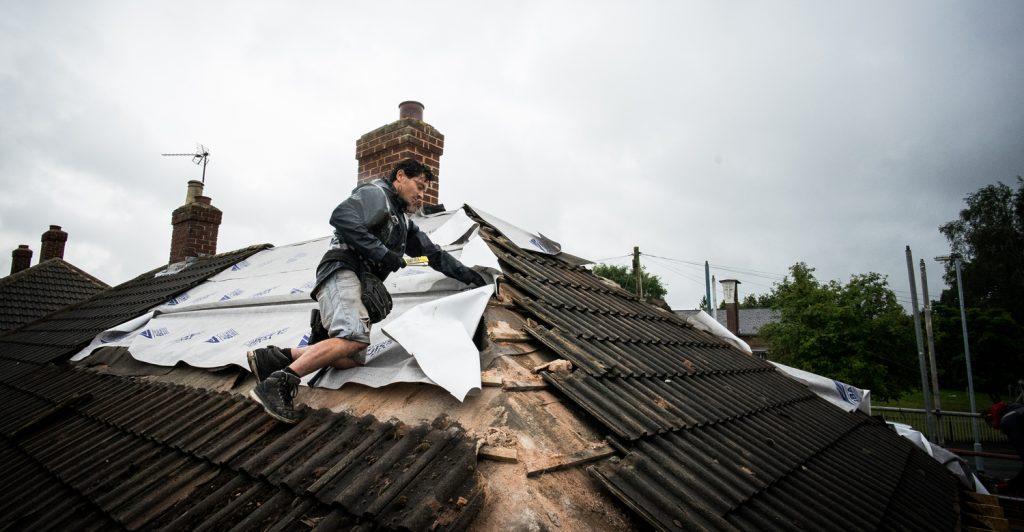Homeownership brings with it various financial responsibilities, including the maintenance and repair of your property. When it comes to substantial projects like roof repairs or replacements, understanding the potential tax benefits can significantly impact your decision-making. In this comprehensive guide, we will explore the question, “Is roof repair tax deductible?” and provide insights into when you might be eligible for tax deductions related to your roofing expenses.

Understanding Tax Deductibility
Before we delve into the specifics of roof repair deductions, it’s essential to grasp the general concept of tax deductibility. Tax deductions are expenses that reduce your taxable income, ultimately lowering the amount of income on which you owe taxes. However, not all expenses are tax-deductible, and there are specific criteria you must meet to claim deductions.
Home Improvement vs. Home Repair
To determine whether roof repair expenses are tax deductible, you must differentiate between home improvement and home repair. Home improvements are projects that enhance the value or functionality of your home, such as adding a new room or renovating a kitchen. Home repairs, on the other hand, are expenses incurred to maintain your home’s current condition, like fixing a leaky roof or repairing a broken window.
Roof Repairs as Home Maintenance
Roof repairs generally fall under the category of home maintenance or home repairs. While they are essential for keeping your property in good condition, they are less likely to qualify for tax deductions compared to home improvements.
When Roof Repair Might Be Tax Deductible
- Natural Disasters: In some cases, if your roof damage is a result of a natural disaster like a hurricane, tornado, or earthquake, you may be eligible for tax deductions. However, this often requires that the government declares your area a federal disaster zone.
- Insurance Coverage: If your homeowners’ insurance covers roof damage, any deductible you pay for repairs may be tax-deductible. Be sure to keep records of the insurance claim and any out-of-pocket expenses.
- Energy-Efficient Upgrades: While not a direct deduction for roof repairs, you can qualify for tax credits by making energy-efficient upgrades to your roof, such as installing solar panels or reflective roofing materials. These credits can offset your overall tax liability.
Keep Thorough Records
Whether you think your roof repair might be tax-deductible or not, it’s essential to keep thorough records of all expenses related to the repair. This includes invoices, receipts, and any documentation from insurance claims. Having organized records will make it easier to determine your eligibility for deductions and credits.
Consult a Tax Professional
The tax code is complex and subject to change, so it’s wise to consult a tax professional or accountant when considering whether your roof repair expenses are tax-deductible. They can provide guidance based on your specific situation and ensure you maximize any potential tax benefits.
Conclusion
While roof repairs are essential for maintaining the integrity and value of your home, they are generally not tax-deductible unless specific conditions apply, such as natural disasters or insurance coverage. To make the most of any potential deductions or credits, keep meticulous records and seek advice from a tax professional. Understanding the tax implications of your home maintenance expenses can help you make informed decisions and manage your homeownership costs more effectively.



Leave a Reply